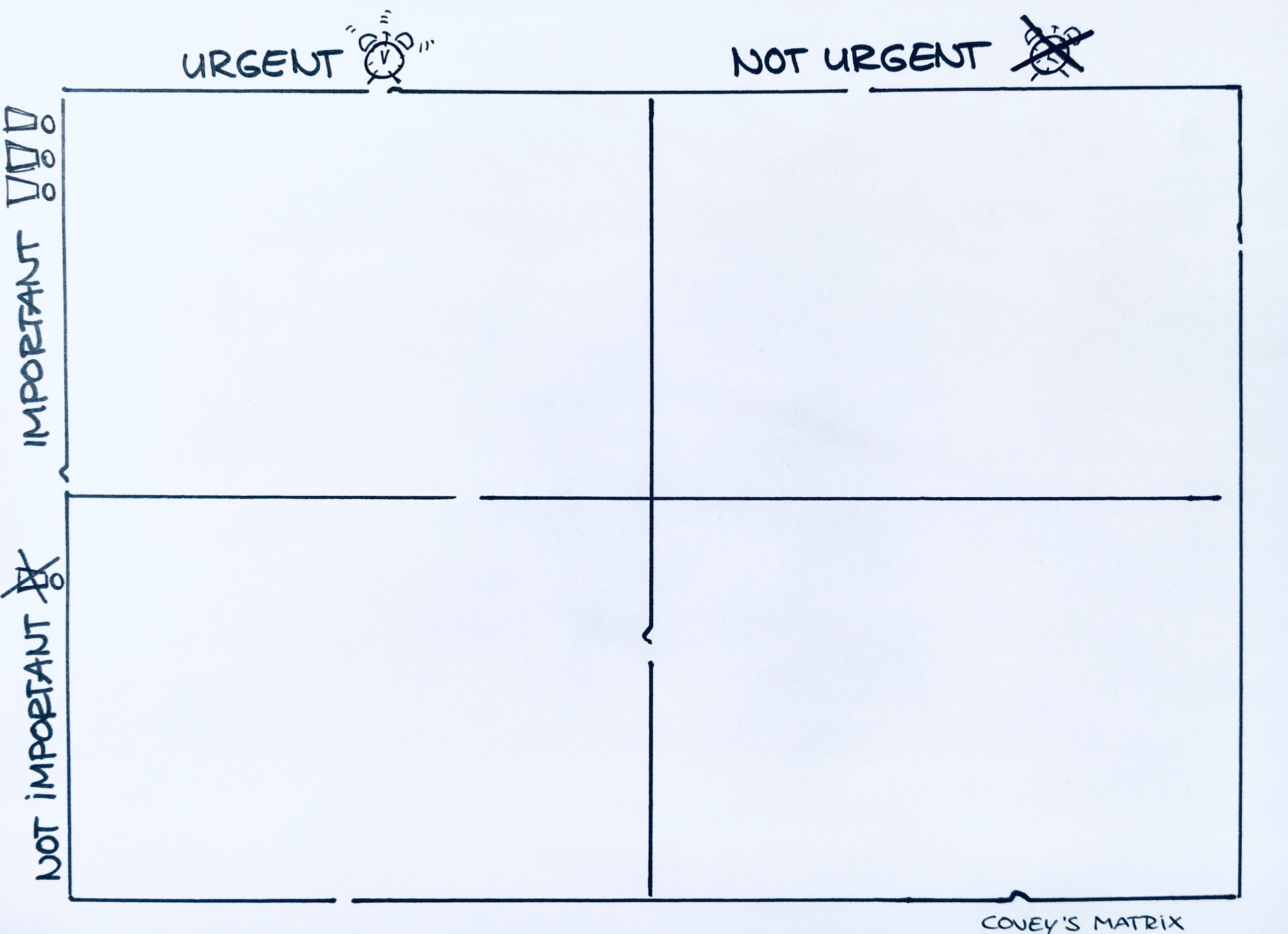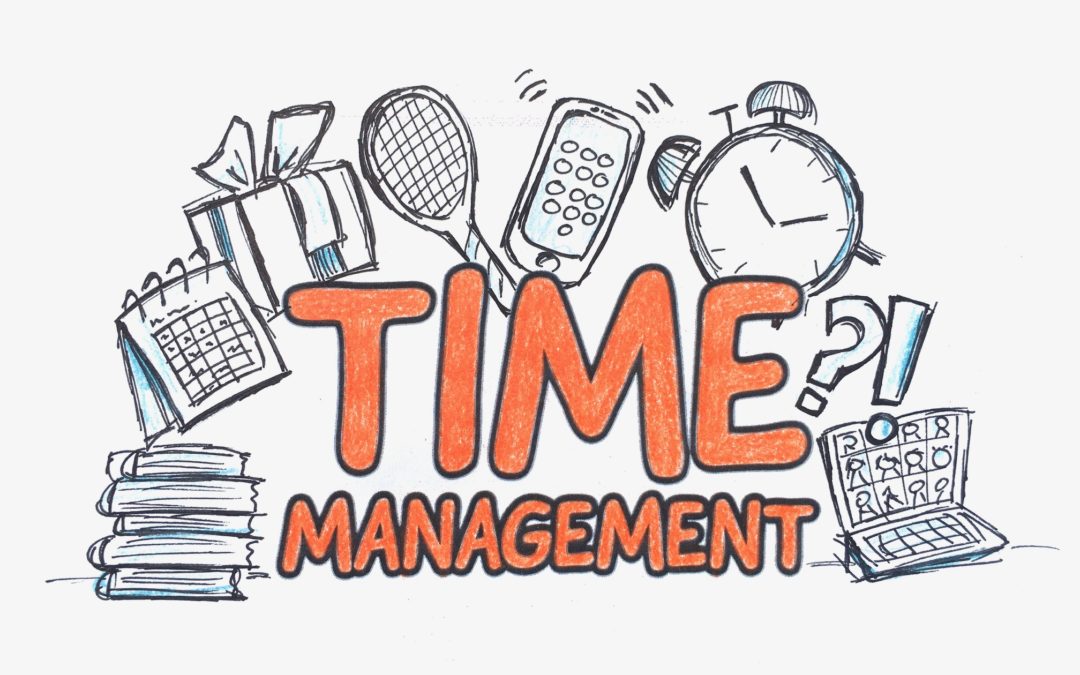A few years ago, when I was still working for an employer and regularly found myself stressed out in the car on my way home, I decided to spend my education budget on Time Management training. Because how was it possible that my colleagues were chilling out during their breaks while I was sat behind my laptop, shoving a sandwich down my throat? I felt a sense of jealousy every now and then and even some anger. Why didn’t they ask me if I needed some help? Couldn’t they see how busy I was? If only I was better at managing my time like they were, I could also go for a stroll during the lunch. With my last bit of energy I dragged myself to the training location in Utrecht. Where – and believe me, I too see the irony – I arrived late, because I forgot the name of the course and sat down in another training room.
You’re probably doing too much already
The trainer opened the day with the legendary words: “You’re probably expecting tips on how you can squeeze more work into your day, and how to organise your inbox etcetera. Well, forget about that, because you’re probably already doing way too much.” We all looked at each other with a confused expression on our faces. This was unexpected. We, as became more clear during the day, were al on the verge of or in the middle of a burnout. And for the first time someone told us we were already doing enough. A weight was lifted off our shoulders and we spent the rest of the training tackling our biggest pitfalls: finding it difficult to prioritise work and to say no.
How do you prioritise your work and how do you learn to say no?
One of the first insights was that it wasn’t fair of me to expect others to somehow see I needed help. They weren’t clairvoyants and I should have just told them I was stuck. Delegating and asking for help was (and still is – it’s a work in progress) a challenge. And saying no was too. But one of the assignments during the training helped me a lot with that. I want to share it here with you. Because it might help you with delegating and saying no, too. Which will free up time for the work you are supposed to do, and especially, for the work you love to do!

Setting priorities
Do you recognise the matrix above? It’s called Covey’s Matrix, an easy tool that will give you insight in the way you work and will help you set your priorities. The question is simple: In which fields would you place the tasks you’ve been working on today? Were they urgent for you, or not very urgent? Were they important to you, or not so much? And what about the work you did in the last week? The emphasisis is placed on the ‘for you’ part because you’ll really need to focus on yourself here.
Urgent and important
If you experience a lot of stress at work, most of your tasks will probably fit in the two fields on the left. Tasks in the field Urgent And Important are critical and need to be dealt with quickly. Ideally, this field would be almost empty because only unforeseen things should end up here. The more you can tackle important tasks while they are still in the field Not Urgent And Important, the less stress you will experience. And the more you’ll be able to focus on your goals.
Urgent and not important
Of course you’ll need time to do that. And that brings us to the field Urgent And Not Important. This is where you can really make a difference. For me, almost 80% of my tasks fell into this category. And while I was filling the matrix I already realised it: If it’s not important to me, why am I so spending so much time on these tasks, under pressure and stressing out? It turned out that others were very talented in making things that were important to them also important to me. And I didn’t say no. This matrix made it clear where my priorities should have been. I still find it difficult to just say No, but I can earnestly say “I’d love to do this for you, but I don’t have time for it at the moment.” And if it’s a task I’d actually like to do I can add “I can do it tomorrow/next week, if you want?” Most of the times it will already be resolved by then, and if not, the task is definitely not urgent and there is no need to stress about it.
Oh yeah, I almost forgot about the field Not Urgent And Not Important. This is where you’ll find a load of distracting things. I’d try to stay away from this field if I were you, it really is a waste of time!
I hope this advice will reduce the amount of stress and frustration in your work. You could apply it to life outside work, too. And if you need help with getting your workload under control, let me know. As a VA I’m happy to support you where I can!


Recent Comments